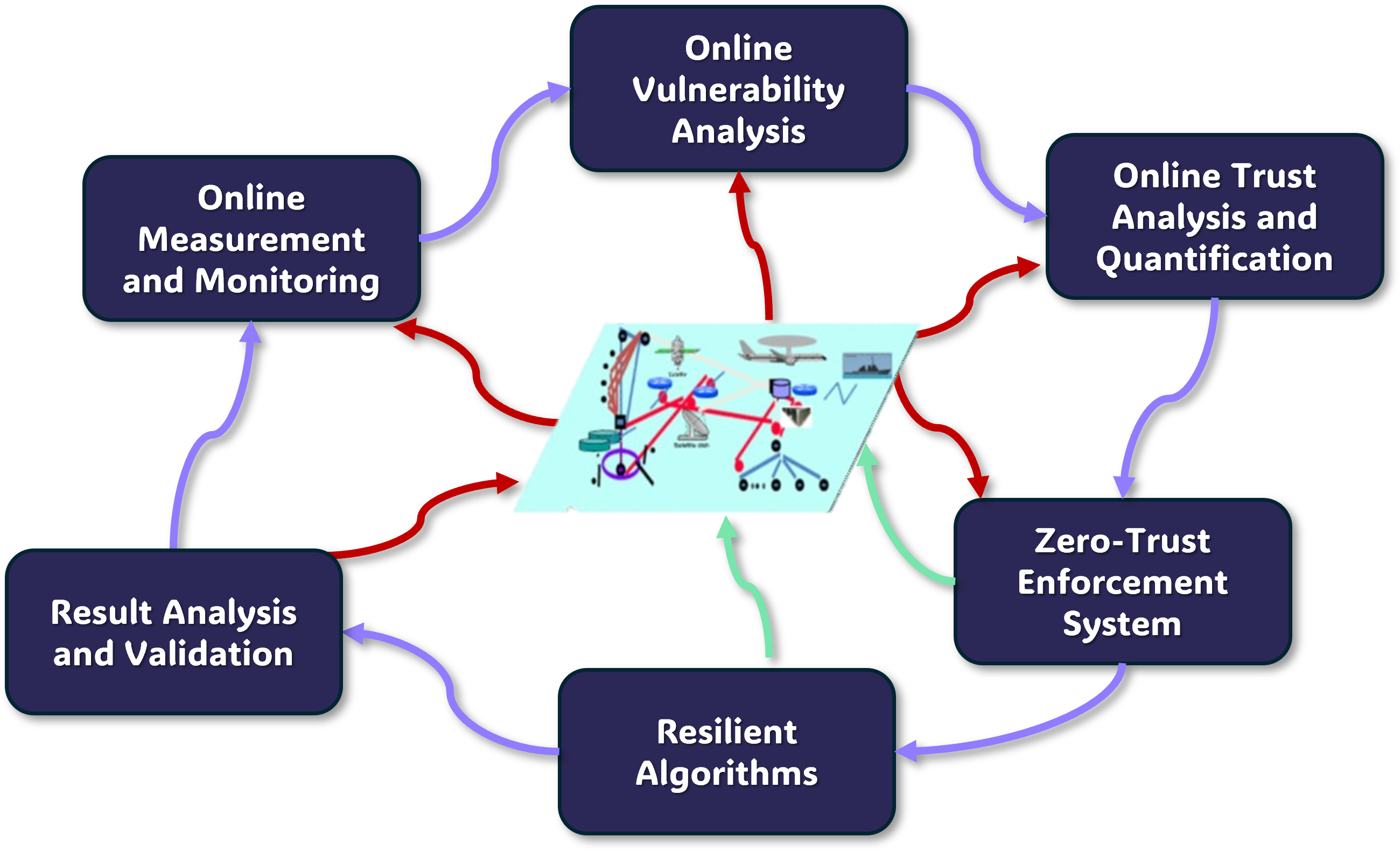
How?
The rSCS Project will develop a theoretical resilience cyber framework that can be used to design resilient smart cyber systems that can tolerate any type of cyberattacks, accidents or failures. We aime to use graph-based modeling techniques to model and quantify resiliency of any resilient cyber system configuration. It considers a theoretical approach to model zero-trust algorithms so it can be used by decision support systems to enforce ZTP in real-time.
As an objectif rSCS aims to produce an AI-enabled theoretical framework for firmware and hardware supply chain security and resiliency and innovate effective real-time threat detection and mitigation.
Finally, the project will demonstrate how the proposed RCT can be applied to secure and protect machine learning algorithms that are used to protect smart cyber systems such as unmanned maritime ships/vehicles, drone, robots, etc.











